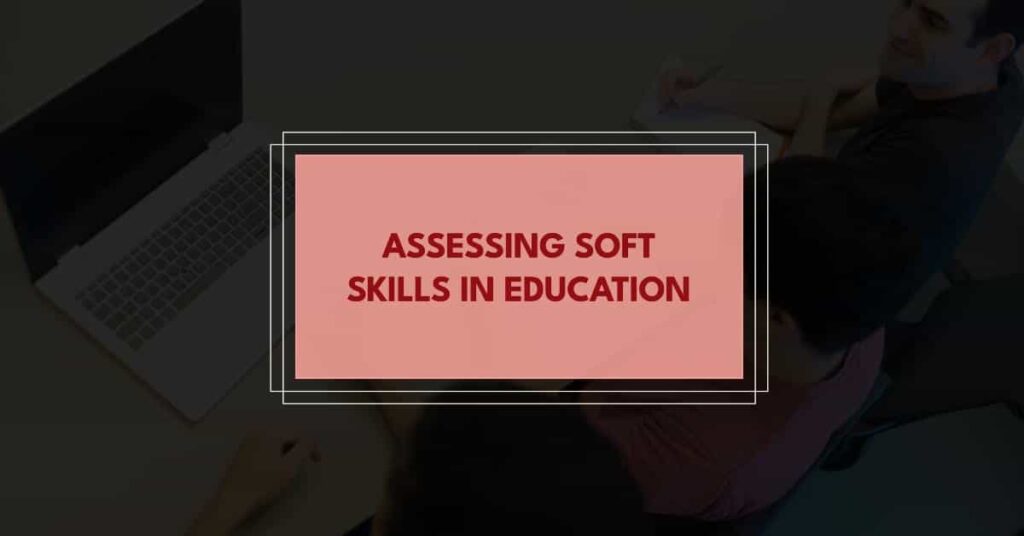Integrating Soft Skills Assessment into Educational Quality Evaluation
In today’s rapidly evolving world, academic achievement alone is no longer a sufficient measure of educational success.Employers increasingly seek graduates equipped with strong soft skills like critical thinking, communication,collaboration, and problem-solving. These skills enable individuals to adapt to dynamic environments, work effectively within teams, and communicate ideas persuasively.
However, traditional educational quality evaluations often focus heavily on standardized test scores and grades. While these metrics offer valuable insights, they can overlook the crucial role of soft skills in student development.

Why Assess Soft Skills?
Integrating soft skills assessment into educational quality evaluation offers several benefits:
- Provides a holistic view of student development: A comprehensive evaluation goes beyond academic performance and assesses a student’s ability to apply knowledge and skills in real-world scenarios.
- Identifies areas for improvement: By understanding individual student strengths and weaknesses in soft skills,educators can tailor learning experiences to address specific needs and ensure well-rounded development.
- Informs effective curriculum design: Assessment data can guide the development of curriculum that actively integrates soft skills development alongside traditional academic content.
- Prepares students for future success: Equipping students with strong soft skills ensures they are well-positioned to thrive in the workforce and adapt to the ever-changing demands of the job market.
How to Assess Soft Skills?
While traditional testing methods might not always capture soft skills effectively, several strategies can be employed for their assessment:
- Performance-based assessments: These assessments involve tasks that require students to demonstrate their soft skills in a practical context. Examples include group projects, presentations, simulations, and role-playing exercises.
- Peer and self-assessment: Students can be trained to evaluate their own soft skills and those of their peers. This promotes self-awareness and provides valuable feedback for educators.
- Portfolio development: Students can build portfolios that showcase their progress and achievements in developing soft skills. Portfolios may include project reflections, presentations, samples of written work, and peer evaluations.
Valdymas College: Fostering Soft Skills Development
At Valdymas College, we recognize the vital role of soft skills in student success. We integrate soft skills development into our curriculum through various initiatives:
- Project-based learning: We encourage students to engage in collaborative projects that require them to work together, solve problems, and communicate effectively.
- Communication workshops and skill-building sessions: We provide dedicated workshops and sessions focused on strengthening communication, critical thinking, and other soft skills.
- Reflective Practices: We encourage students to engage in reflective practices, such as journaling and self-assessment surveys. These activities help students develop self-awareness and a deeper understanding of their own learning processes. Reflective practices are integrated into our assessment framework to provide a comprehensive view of student development.
- Critical Thinking: We incorporate critical thinking assessments across our curriculum through debates, case studies, and problem-solving activities. Students are encouraged to question assumptions, analyze arguments, and develop reasoned conclusions. These activities are often assessed using rubrics that outline clear criteria for critical thinking skills, such as clarity, accuracy, relevance, and logic.
Conclusion
Incorporating soft skills assessment into educational quality evaluation is crucial for ensuring a well-rounded education.By going beyond the numbers, we can provide students with the skills they need to succeed in the 21st century and beyond. At Valdymas College, we believe that fostering strong soft skills alongside academic excellence prepares our graduates to become confident, adaptable, and valuable members of the workforce.
References
- World Economic Forum. (2020, October 21). The Future of Jobs Report 2020.https://www.weforum.org/publications/the-future-of-jobs-report-2020/
- Partnership for 21st Century Learning. (n.d.). Framework for 21st Century Learning.https://www.battelleforkids.org/insights/p21-resources/
- National Association of Colleges and Employers (NACE). (2023). Job Outlook 2023. https://naceweb.org/



